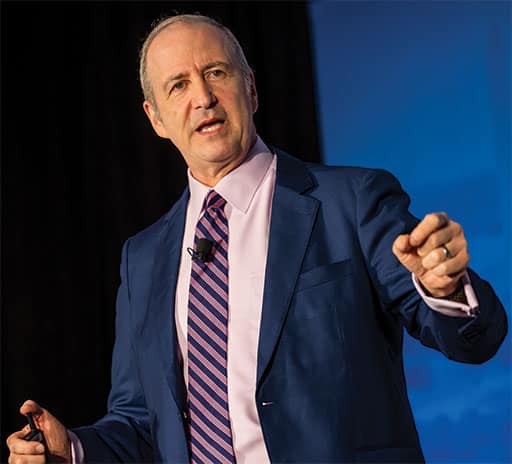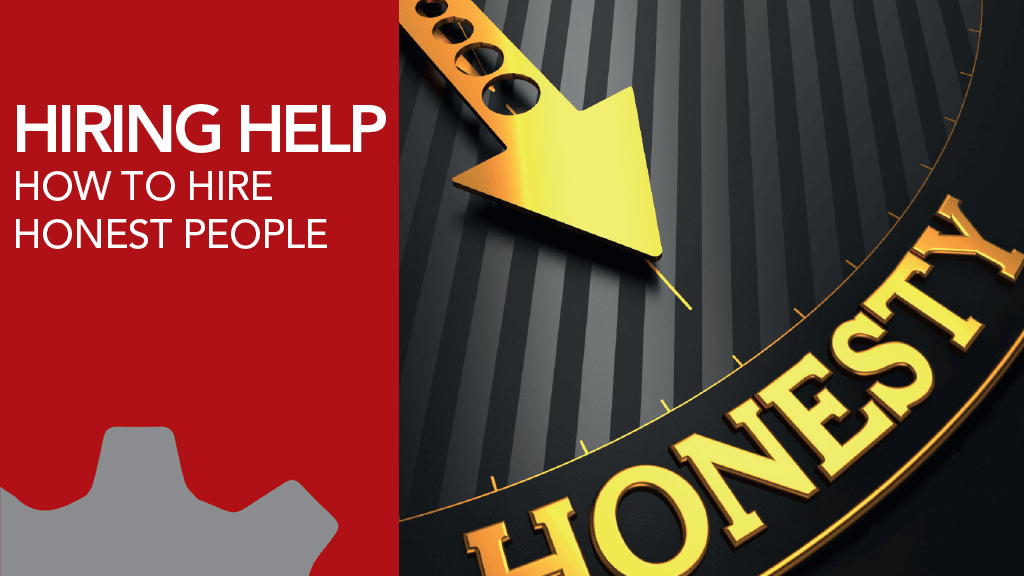In my previous article in Aviation Maintenance, “Hiring Help: Why Aren’t You Including This Crucial Element in Your Job Descriptions?,” we considered why smart businesses hire for character as well as competence. In this follow-up piece, I’ll present a few questions you can and should ask of job candidates to evaluate their honesty, one of 10 crucial qualities of high-character employees. Let’s go!
If They Look Honest, They Probably Are — Right?
My father once bought a life insurance policy from an agent who was a likeable guy. Warm, friendly, and a good listener, Eric was just the kind of person you wanted on your team. His impeccable credentials, strong references, and a professional demeanor made him an understandable choice to handle such an important part of my father’s financial portfolio.
He also turned out to be a crook.
After my dad discovered that Eric had embezzled thousands of dollars, my father sued him, and I went to the trial. I’ll never forget what Eric’s own attorney said to the jury: “No one will ever trust Eric again.” When your own attorney publicly declares you to be untrustworthy, you’ve got some real integrity problems. Eric was convicted of embezzlement and sentenced to prison. After his release, he operated a limousine company and died at the age of sixty-two.
Had you met Eric, I’ll bet you too would have believed him to be an honest person you could trust as your insurance agent. He is an excellent, if tragic, example of how difficult it is to evaluate a job candidate’s honesty.
But because honesty is one of ten crucial qualities of high-character employees in aviation maintenance and everywhere else, the following questions may be helpful to you.

Evaluating Honesty in Job Candidates: Question #1
Ask this in a job interview: “Tell me about a time when you had to tell a direct report an unpleasant truth. What were the challenges and how did you get past them? What were the consequences?”
A few years ago, I gave a talk on ethical leadership to an engineering company. I asked the audience if someone would be willing to discuss a time they had to tell an uncomfortable truth at work and something good happened.
An audience member I’ll call Jeff (not his real name) told a story in which he made a major mistake on a project. He had to tell the client that completion of the project would be delayed by several months. Jeff was afraid the client would be angry but knew that he had to reveal what had happened.
How do you think the client responded? With gratitude! “I appreciate your having the courage to tell me the truth,” the client said. “And when this project is over, I’m giving your company another contract.”
I asked Jeff how much that second contract was worth.
“Three million dollars,” he responded.
Here is a direct line from honesty to a quantifiable financial benefit. Of course, honesty doesn’t always have this result. Sometimes the benefit is a qualitative one, such as improved morale. It feels good to do the right thing.
This story has a fascinating postscript. I asked the audience of 95 senior executives from across the country, most of whom knew Jeff, to raise their hands if they’d heard the story before. Only one hand went up — Jeff’s engineering partner.
Does it make sense to you that such an inspiring story was one of that company’s best-kept secrets? The only reason the leaders learned about Jeff’s story is because someone had asked for it.
A high-character job candidate who applies to work on your team may have a story like Jeff’s, but you have to discover it by asking the right question.
Evaluating Honesty in Job Candidates: Question #2
Ask this in a job interview: “Have you ever cheated, and if so, what did you learn from it?”
From time to time, I interview high school students who are applying to the college I attended. A few years ago, I mentioned to Rob, the young man I was interviewing, that I’d just written a book called Is It Still Cheating If I Don’t Get Caught? I told him how dismayed I was by stories in the news of cheating in high schools and colleges and asked him point-blank if he had ever misrepresented himself.
“Yes,” he said. “My friends and I have done it more than once. School is so competitive now you have to cheat to get good grades.”
Rob got a “Do not admit” recommendation from me on the college evaluation form. Yes, he told me the truth, but it was a truth that should have been told with remorse, that deep sense of guilt we get after we do something wrong. Instead, Rob was nonchalant about his cheating.
There are two downsides to asking a direct question about dishonesty. First, it immediately strikes fear in the candidate’s heart, even if the candidate is an honest person. I don’t like making a job candidate squirm.
The question also seems to present a no-win situation for candidates. They may reason that if they admit to having cheated, they won’t get the job (as happened to Rob), but if they lie, they’ll be worried about getting caught and rejected. Only candidates who have never cheated have nothing to worry about, except being believed.
But the savvy interviewer will not reject candidates simply because they admit to having cheated. What bothered me about Rob wasn’t so much his admission of cheating but the fact that he exhibited no remorse. He even attempted to justify it.
The smart employer looks not for perfection but for an explanation of how the consequences of a dishonorable act affected the candidate and others. It is also helpful if the dishonorable act in question occurred a long time ago.
Several of the HR managers I spoke with in doing research on this topic told me, “You’d be surprised how often people will just come out and tell you about the dishonest things they’ve done.” I agree.
What are the other qualities of high-character employees? Earlier I mentioned that honesty is one of ten crucial qualities of high-character employees. The other nine are:
- Accountability
- Care
- Courage
- Fairness
- Gratitude
- Humility
- Loyalty
- Patience
- Presence (focus, mindfulness)
You can and should ask questions of job candidates that reveal their commitment to each of these. We’re out of room to present more interview questions here, but I wrote a book that’s chock-full of them. It’s called The Good Ones: Ten Crucial Qualities of High-Character Employees, and it’s available as a paperback, e-book, and audiobook.
A Call to Action
To evaluate the honesty of job candidates, ask these questions during interviews:
“Tell me about a time when you had to tell a direct report an unpleasant truth. What were the challenges and how did you get past them? What were the consequences?” And, “Have you ever cheated, and if so, what did you learn from it?”
Neither you nor the public can afford for your aviation maintenance business to have a single dishonest employee. If you heed the call to action from the previous article in this series (include references to your company’s values in every job description you post) and ask character-based questions during job interviews, you will go a long way toward having only honest people at every level of your company.
